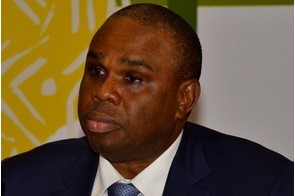Latest News
China’s Sinochem Group signs 10 year-deal to buy Angolan oil

News Highlight
Angola has been facing a foreign currency crisis and has slashed its budget by nearly 30 percent and it looks to borrow $25 billion.
China’s Sinochem Group has signed a deal with Angola’s state oil company, Sonangol, to buy crude oil for 10 years.
According to Reuters, Sinochem Group will purchase up to four or five cargoes of Angolan crude oil per month. The financial details of the deal were not disclosed.
Angola often rewards China with generous oil deals to repay post-civil war loans that have reached about $20 billion. China is already one of the largest buyers of Angolan crude oil. Last year China agreed to lend $2 billion to Sonangol to expand oil and gas projects.
The current deal represents a major boost for Angola as major oil producers – such as Russia, Saudi Arabia and Iran – fight for market share in the face of declining oil prices, which have fallen by over 60 percent since last year.
Just like other oil-dependent countries, Angola has been facing a foreign currency crisis and has slashed its budget by nearly 30 percent and it looks to borrow $25 billion.
In June, Angolan President Jose Eduardo dos Santos met his Chinese counterpart, Xi Jinping, to ask for a two-year moratorium on debt repayments as well as financing for a variety of projects, including a $4.5 billion hydropower scheme.
Chibuike Oguh is Financial Nigeria's frontier markets analyst
Related News
Latest Blogs
- Political party and democracy failure in Nigeria
- Between night vigils and night shifts
- Nigeria requires new approaches for infrastructure development
- TELA Maize and addressing the concerns over GM foods
- Nigeria’s 2025 economic outlook
Most Popular News
- Artificial intelligence can help to reduce youth unemployment in Africa – ...
- Spiro partners Davido to drive electronic mobility across Africa
- NCC approves 50 percent increase in mobile telecom tariffs
- Global economic recovery is losing steam, new ILO report says
- Finnovex conference in Lagos to drive financial inclusion, economic growth
- Nigeria’s inflation rises to 34.8 percent









